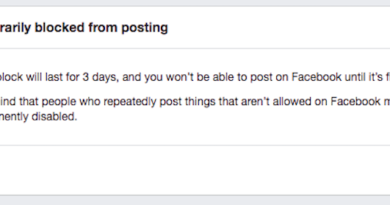How to Manipulate the Masses Like a War Criminal
“The conscious and intelligent manipulation of the organized habits and opinions of the masses is an important element in democratic society. Those who manipulate this unseen mechanism of society constitute an invisible government which is the true ruling power of our country.” – Edward Bernays (a.k.a. “the father of public relations”), Propaganda, 1928
Hegel and the Advancement of History
Georg Wilhelm Friedrich Hegel is a name political science and philosophy students may be familiar with, but most people have never heard of him. Hegel was a German philosopher that lived in the late eighteenth to early nineteenth century. Hegel’s life and how he rose to prominence as a philosopher is an intriguing story, however it’s what other people have done with a seemingly benign philosophy he developed that makes his name so important to understanding what is occurring in our world today.
One of Hegel’s philosophies is about how history progresses. This philosophy is known as the “Hegelian Dialectic” and it can be summed up like this. Any idea that exists will necessarily come into conflict with its opposite. A solution will emerge from this conflict of opposing ideas and that solution will then eventually come into conflict with its own opposite idea. This conflict will produce yet another solution. That solution, in turn, will also come into conflict with its opposite to produce yet another solution, and so on and so on.
To put it in Hegel’s own terms, you start with a “thesis”, which means “the idea”. That thesis eventually comes into conflict with its “antithesis”, an opposite idea. The conflict that arises from these two opposing ideas creates the “synthesis”, which is the solution. But it doesn’t end there. This solution will inevitably come into conflict with its own antithesis and yield yet another solution, and so on and so on. In short, the Hegelian Dialectic is a system to explain the development of history, which Hegel said is basically the idea of freedom unfolding. Read on for the irony in that statement.
The Hegelian Dialectic as a Tool of Mass Manipulation
This is where it gets interesting. In developing this philosophy, Hegel was just trying to explain how human history develops. But some other people, people of political and financial power, took Hegel’s idea of thesis-antithesis-synthesis and perverted it into what a growing number of researchers, like David Icke for example, refer to as “problem-reaction-solution”. But problem-reaction-solution isn’t just an explanation of how history develops. Instead, problem-reaction-solution is a system for controlling how history develops. This is achieved by manipulating the masses. In other words, by manipulating you and me.
Problem-reaction-solution works a lot like the Hegelian Dialectic, except that it is an intentionally created phenomenon rather than a naturally occurring one. You start out with a goal or an agenda that you want the public to go along with, but you know that if you’re up front about it the public will actually never go along with it. So you create a crisis, the problem, and you blame it on an easy target like a political, religious or ethnic minority, or maybe something amorphous like “communism” or “terrorism”. Then you get the media to play up the problem in order to generate a public outcry. The public then, in turn, demand that action be taken in response to the problem and you offer up your solution to the problem. Your solution, of course, is your original goal that the public would have never gone along with in the absence of the problem that you created.
It Takes a Conspiracy
The “you” I was referring to in that last paragraph isn’t just anybody, of course. It’s somebody with power and it’s really not just one person, but a group of people. To manipulate the masses takes the coordination of corporate, government and media resources, and that requires cooperation between people in key positions throughout society. When people work together for a secret purpose, then by definition they are engaging in a conspiracy. There are people who say that it’s just the government using this paradigm to manipulate the masses, but it’s not always limited to government. Government, however, does always seem to be involved.
That leads to another important point. Historical examples of problem-reaction-solution show that the ultimate goal of these conspirators always involves the centralization of power and the limiting of individual freedom. However, the problems they create, and their immediate ends, aren’t always political. The variety of crises they have created, or at least taken advantage of, can be seen in some of the most significant events in history. Here’s a short list:
- The Nazi’s burning of the German Reichstag (parliament building) in 1933, blaming it on communist terrorism and using the public fear and outcry to give Chancellor Adolph Hitler dictatorial power.
- The American financial panic of 1907, known as the “Knickerbocker Panic”, which ultimately led to the creation of the Federal Reserve System on the public outcry that the government take action to stabilize the financial markets and banking system.
- The 9/11/2001 attacks on the World Trade Center in New York City and the subsequent “war on terror”, which have been used to centralize power in the executive branch, gut Constitutionally mandated privacy and civil liberty guarantees, and to militarize the police.
It Takes You
The problem-reaction-solution method of manipulating the public only works if we allow ourselves to be scared or otherwise tricked into giving up our freedom, our liberty, our morality or our wealth. Armed with this knowledge, it is incumbent on each and every one of us to ask the important questions of those in power, especially in times of crisis. The first question should always be “who benefits?” from whatever the crisis is, and it should be asked whether or not we like those currently in power. Problem-reaction-solution can only work if we are willing to let it. If we all keep the Hegelian Dialectic in mind and keep asking questions, especially in times of political turmoil, we might just be able to keep from getting fooled again.
@PoliticalNews4u | Facebook/PoliticalNewsReport | Google+/PoliticalNewsReport | Subscribe
Nazi, German officer image from Big Stock Photo



